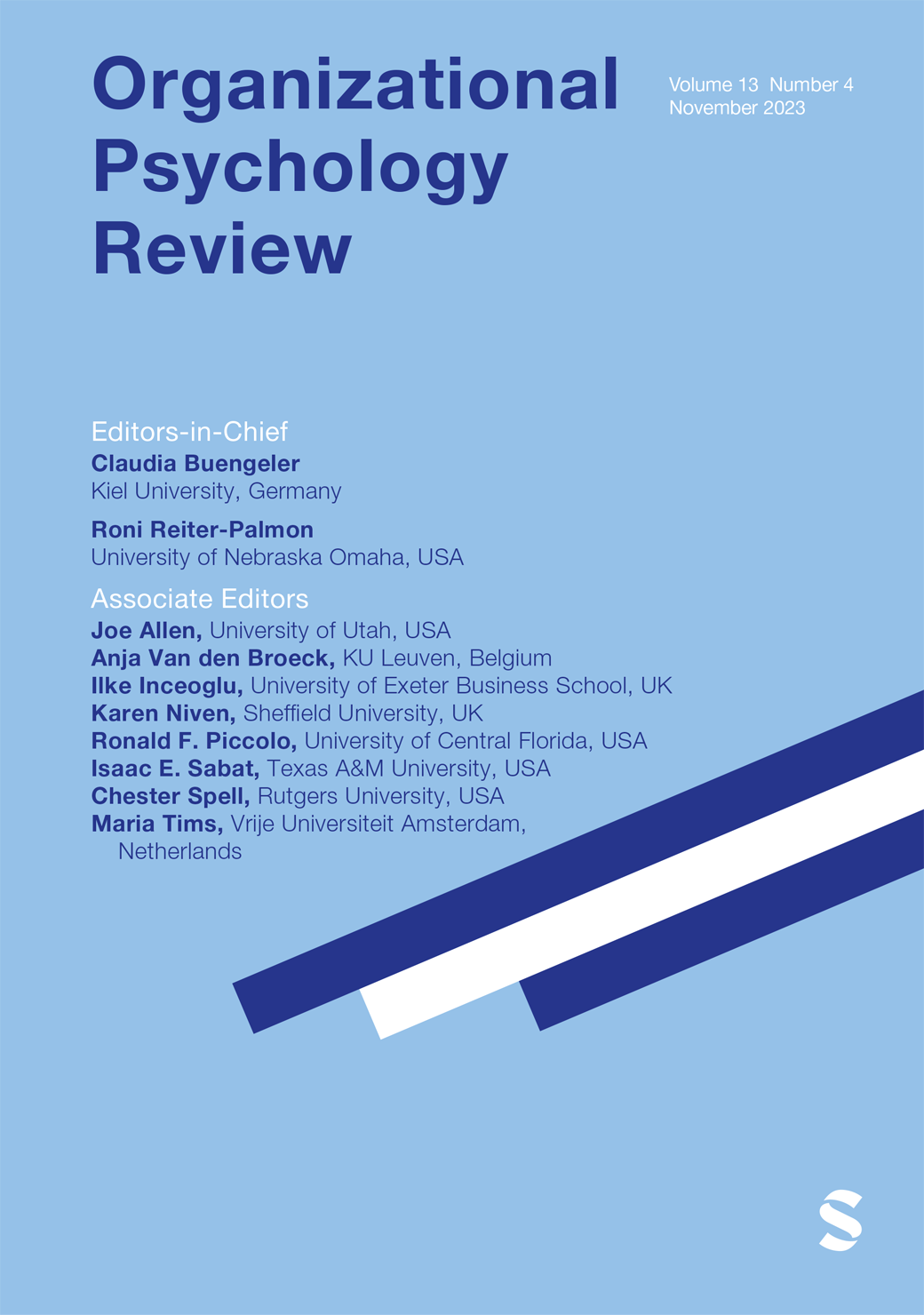述情障碍与工作场所反生产行为之间的关系
IF 7.1
1区 心理学
Q2 MANAGEMENT
引用次数: 0
摘要
目的。述情障碍的概念被认为是难以定义、调节和表达自己情绪的个体,在组织生活中呈上升趋势。有人认为,难以定义自己情绪的员工不可能在工作场所建立积极的关系。因此,本研究旨在探讨述情障碍是否对反生产行为有影响。研究设计。通过方便抽样方法从土耳其公共和私营部门组织的334名雇员中收集数据。参与者的平均年龄为34.1岁,在行业中的平均年资为7年,在组织中的平均年资为3年。数据是通过调查表格收集的。采用反生产行为量表(CWB)和多伦多述情障碍量表(TAS-20)作为数据收集工具。发现。研究表明,述情障碍对适得其反的工作行为有重要影响。此外,述情障碍对组织偏差(Cwb-O)的贡献大于员工偏差(Cwb-P)。通过简单的回归分析,确定述情障碍子维度对工作场所反生产行为的预测程度。“情绪识别和言语表达困难”显著预测了员工对组织的反生产行为(β = 0.65, t = 15.7, p = .00)和对员工的反生产行为(β = 0.42, t = 8.52, p = .00)。结果的价值。该研究结果将为组织中反生产行为提供一个新的视角,并为工业和组织心理学文献做出贡献,因为它是土耳其第一个关于述情障碍与反生产行为之间关系的研究。本文章由计算机程序翻译,如有差异,请以英文原文为准。
The relationship between alexithymia and counterproductive behaviors in the workplace
Purpose. The concept of alexithymia which is expressed as individuals having difficulty defining, regulating, and expressing their emotions, is believed to be on the rise in organizational life. It is argued that it is not possible for employees who have difficulty defining their emotions to build positive relationships in the workplace. Therefore, this study aims to investigate whether alexithymia has an impact on counterproductive work behaviors. Study design. Data were collected through the convenience sampling method from 334 employees working in public and private sector organizations in Turkey. The mean age of the participants is 34.1 years, the mean seniority in the profession is seven years, and the mean seniority in their organizations is three years. The data was collected through asurvey form. The Counterproductive Work Behaviors Scale (CWB) and Toronto Alexithymia Scale (TAS-20) were used in the data collection tool. Findings. The study revealed that alexithymia has a significant contribution to counterproductive work behaviors. Moreover, it was found that alexithymia has a stronger contribution to organizational deviance (Cwb-O) than employee deviance (Cwb-P). As a result of the simple regression analysis carried out to determine to what extent the sub-dimension of alexithymia predicts counterproductive work behaviors in the workplace. “Having difficulty recognizingand verbalizing emotions” significantly predicted counterproductive work behaviors towards the organization (β = .65, t = 15.7, p = .00) and counterproductive work behaviors towards the employee (β = .42, t = 8.52, p = .00). Value of results. The findings of the study will provide a new perspective on counterproductive work behaviors in organizations and contribute to the industrial and organizational psychology literature as it is the first study in Turkey regarding the relationship between alexithymia and counterproductive work behaviors.
求助全文
通过发布文献求助,成功后即可免费获取论文全文。
去求助
来源期刊

Organizational Psychology Review
Multiple-
CiteScore
10.00
自引率
1.60%
发文量
25
期刊介绍:
Organizational Psychology Review is a quarterly, peer-reviewed scholarly journal published by SAGE in partnership with the European Association of Work and Organizational Psychology. Organizational Psychology Review’s unique aim is to publish original conceptual work and meta-analyses in the field of organizational psychology (broadly defined to include applied psychology, industrial psychology, occupational psychology, organizational behavior, personnel psychology, and work psychology).Articles accepted for publication in Organizational Psychology Review will have the potential to have a major impact on research and practice in organizational psychology. They will offer analyses worth citing, worth following up on in primary research, and worth considering as a basis for applied managerial practice. As such, these should be contributions that move beyond straight forward reviews of the existing literature by developing new theory and insights. At the same time, however, they should be well-grounded in the state of the art and the empirical knowledge base, providing a good mix of a firm empirical and theoretical basis and exciting new ideas.
 求助内容:
求助内容: 应助结果提醒方式:
应助结果提醒方式:


